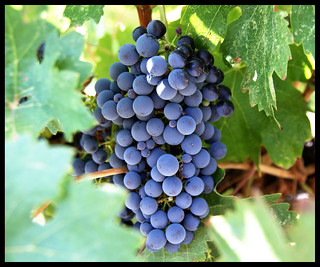 As a winemaker there are two different approaches you can take making wine. One is over bearing and controlling while the other is a gentle guide. Which will you choose?
As a winemaker there are two different approaches you can take making wine. One is over bearing and controlling while the other is a gentle guide. Which will you choose?
At each step of the way the overbearing winemaker is constantly checking and adjusting everything. From sulfur dioxide levels to pH to sugar content no aspect of the wine is left untouched. The grape juice is beaten down and forced to fit the winemaker’s vision.
Incidentally this is often how commercial super-wineries must function in order to produce a consistent product from year to year. How else can every vintage taste exactly the same? They must meet their customers expectations regardless of the grapes natural tendencies for that vintage.
On the other end of the spectrum is the laissez-faire parent who lovingly guides their child but never forces them in any given direction. They’re allowed to grow up and fulfill their own destiny. Chemistry is only meddled with if things are not going in a positive direction, otherwise the yeast and grape juice are left to their own devices.
While this doesn’t lend itself to a consistent wine from year to year it often produces much more spectacular results. Different vintages will have different characteristics.
The Creation of Wine is a Natural Process
Everything required to make wine occurs naturally without any intervention at all from us. Yeast grows naturally on grapes and when the grapes fall from the vine and begin to break down the yeast turns the sugar into alcohol just like in your fermenter.
There are many more bacteria and micro-organisms that also congregate on grapes, however, that lead to a terrible tasting rotten mush. As wine makers it is our job to create the best possible conditions for the yeast to work its magic. At the same time these other micro-organisms must be stopped. Sulfur dioxide, it turns out, is just strong enough to kill off the undesirable elements yet leaves the yeast uninhibited.
Herein lies your choice. Will you control this process in every detail or let nature take its course with some guidance from a loving hand?
What Great Winemakers Do
A truly great winemaker intervene as little as possible during the winemaking process. Many will ferment their wine with the naturally occurring yeast that came with their grapes.
Strong-arm tactics like adding sugar to produce 16% alcohol are just not the trademark of a remarkable winemaker. A great winemaker will taste the fruit and the crushed grapes and determine what its outstanding characteristics are and guide the wine such that those characteristics are emphasized in the finished product.
It takes more knowledge and skill to use fewer chemicals in the winemaking process. Recently I read an article where one winemaker in particular was advocating the listing of chemicals used to make wine on the back wine label. His argument was that the best wine makers will list little more than grapes, yeast, and sulfur dioxide. It would separate the great wine makers from the overbearing ones. Consumers would be able to evaluate the quality of wine based on how it tastes relative to the ingredients used.
Starting Out
If you’re just getting started with winemaking and you’ve got your first kit it’s a good idea to stick to the directions. Kits come with more chemicals than what an experience winemaker may choose to use. However, they’ve been designed to produce consistent results for beginners.
Go by the rules for now until you’ve got a handle on all the different forces at work in the process. Once you’ve got a good understanding wine chemistry you can start to do only what’s necessary.
It takes a trained palate and a few vintages under your belt before you’ll be able to foresee the characteristics of a finished wine based on the taste of an unfermented piece of fruit. With practice, some training, and lots of experimenting though you too can aspire to this level of winemaking.
So what will it be? Which path will you choose? Let me know your decision and thoughts in the comments!
Photo by: RVWithTito

